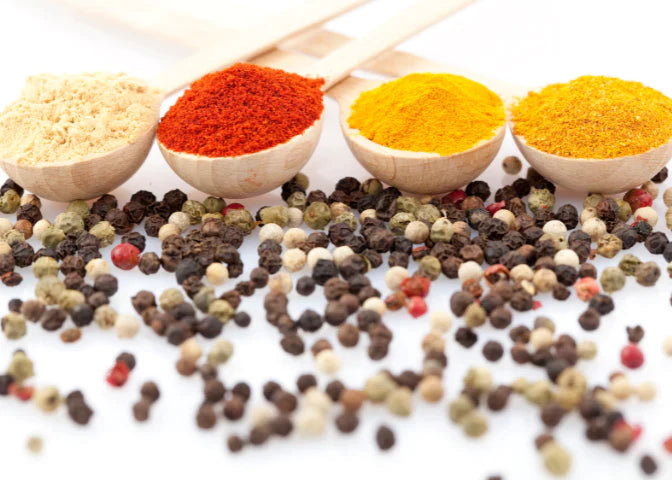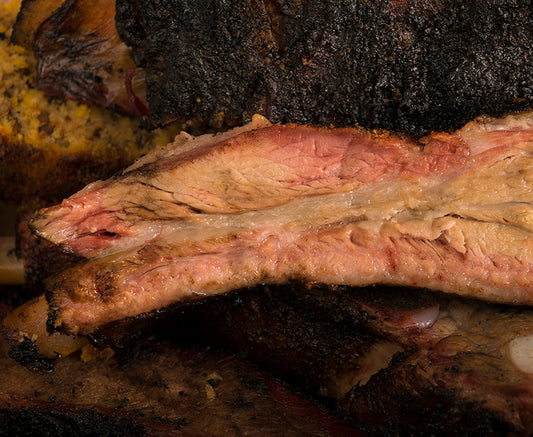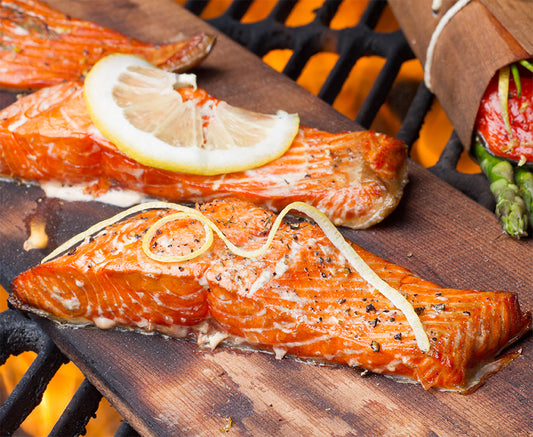Properly seasoning meat makes a huge difference to its flavor. Ribs, for instance, are delicious when cooked properly but can easily become dry and tough when overcooked. The solution is to season them overnight, so the meat absorbs all of the seasoning’s flavor before it’s cooked. If you’ve been searching for how to properly season ribs to transform them from delicious to “unforgettable, epic, people-are-going-to-be-talking-about-these-ribs” amazing, here’s how to do it.
How to Season Ribs Overnight
Ribs are quite simple to season, but first, you must prepare them for it. Check the ribs to confirm whether they still contain the membrane or not. Leaving the membrane on will result in tough, dry ribs you won’t enjoy when cooked.
Prepare the ribs by first removing the membrane from the outer part of the rack. A paring knife can be used to make this process easier. Using your other hand, gently pull the membrane off the ribs. The membrane may come off in sections, so be sure to remove it in its entirety. Then, cut the ribs in half and place them bottom side up on a rack. Use paper towels to dry both halves.

Wet or dry rub?
The whole point of smoking ribs is to give them as much time as possible to improve their texture and absorb maximum smoke. A dry rub will help with that. Most dry rub recipes contain salt, which pulls water from the surface of the ribs. Sugar is another common and important ingredient in most recipes. When you subject them to a lengthy smoking process, it will allow the ribs to form a nice, caramelized coating that will seal in the juices and prevent them from drying out. You won’t need to prepare a barbeque sauce for these ribs.
Apply the dry rub to both sides of the rib racks. Don’t be afraid to use generous portions too. Make the coating as thick as you can. You can coat the ribs with olive oil or mustard first to help it stick. Then, use your hands to spread it evenly on the surface of the ribs. The thick coating of the rub will keep the meat moist and tender while giving it a flavorful exterior.
Ensure you don’t dry the ribs
Remember, the goal is to infuse maximum flavor, not dry the ribs. Don’t keep the ribs coated for more than 12 hours. As we stated earlier, most dry rubs contain salt, which has a dehydrating effect, so prolonging the seasoning may work against you if you keep it on too long.
Don’t wrap the ribs in cling film when using a dry rub overnight. If you do, the water from the meat will undo your efforts and everything you are trying to achieve by using a dry rub. To get the best results, store the uncovered ribs in the fridge or a cool and dry place. You’ll be rewarded with fall-off-the-bone tender meat and enough smokiness to satisfy even the most die-hard barbecue lovers.

Which Are the Best Seasoning Rubs?
To get the best results from the rub, use a good quality one to enhance the taste of your ribs. Again, this will depend on your tastes and preferences. Most dry rub recipes are pretty easy to make with readily available ingredients. You can make your all-purpose rub at home or use a store-bought one.
You only need one main ingredient, such as chili pepper or brown sugar, to get started. Salt is, of course, a major ingredient in many recipes, and so is pepper. For pork ribs, everything else comes after sugar. The sweetness of the sugar perfectly complements the sweet and savory pork and brings out its intense flavor.
Here are the basics:
Sweet rubs
If you like a little sweetness, then this recipe is for you. You’ll need to use raw sugar and brown sugar as the base. You will also need salt, preferably kosher, and chili powder. Next is black pepper, ground thyme, cinnamon, and ground cumin. Finish it off with onion powder, garlic powder, and grated orange peel. You can also top it off with ground chipotle or cayenne pepper.

Spicy rubs
This is for you if you prefer more of a bite to sweetness. In place of sugar, intensify the quantities of cayenne, crushed red pepper, or chili powder. Use ground jalapeno peppers, ghost peppers, or fresh ginger to kick up the taste a notch higher. Reduce the amount of salt you use to lower the concentration of sodium in the rub.
Savory rubs
This simple rub is what you need if you prefer a milder flavor. It’s mostly a variation of the multi-purpose rub.
All you need is some brown sugar, salt, smoked paprika, ground black pepper, and garlic powder. Add some herbs such as thyme and rosemary to give your rub an earthier taste.
In Summary
Remember, the seasoning is only half of the final flavor in smoked ribs. Select the smoke wood carefully to get the best out of the smoking experience.
Interested in checking out more information about meat rubs? Look no further than our articles on:
3 Homemade Rubs to take Your Smoked Chicken to the Next Level
Famous Rub Types Paired with Delicious Recipes
What is a Rub, Why and How to Do It?
If you want more tips and hacks, check out the Bradley Food Smoking Blog. Happy cooking!





